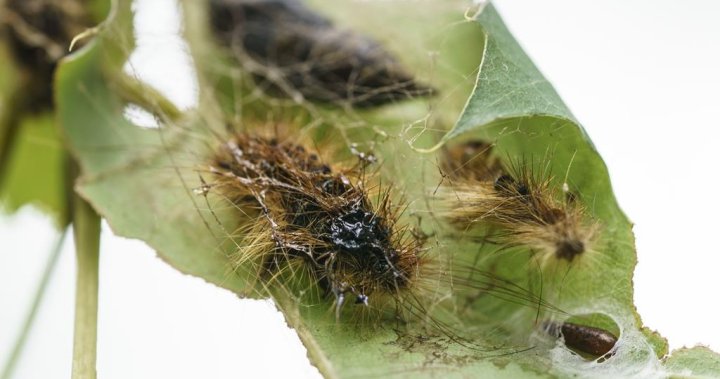Some environmentally conscious individuals in West Kelowna, B.C. are questioning plans to aerially spray a bacterial pesticide called Foray 48B over a 52-hectare area with a 165-hectare buffer zone. The local Citizens Safety Association attempted to voice their concerns to the West Kelowna council last week but were shut down as council members pointed out that the decision to spray is a provincial matter, not within the municipality’s jurisdiction. Despite the group’s efforts to address the council, they were told that it was not the appropriate venue for such discussions.
West Kelowna Mayor Gord Milsom and Coun. Rick de Jong emphasized that the issue of aerial spraying falls outside of the municipal government’s control and that the group’s request to address the council violated procedure guidelines. The only council member who showed interest in the issue was Coun. Stephen Johnston, who acknowledged the issue’s jurisdictional limitations but believed that learning more about it could be beneficial. However, despite his willingness to listen, the conversation was ultimately ended, leaving the group determined to continue advocating against the aerial spraying.
Foray 48B is a biological insecticide containing Bacillus thuringiensis var. kurstaki (Btk), which is approved for use in B.C. and registered with the Organic Materials Review Institute. The provincial government states that the spray is only harmful to moth and butterfly larvae and is safe for humans and other animals. In response to the planned aerial application, the Citizens Safety Association sent a letter to the West Kelowna city council expressing concerns about potential health risks associated with the pesticide. Their package of information outlined various health concerns such as respiratory, vision, cardiac, neurological, gastrointestinal, and skin issues.
The association’s concerns about the health risks associated with aerial spraying do not align with the provincial standpoint on the matter. The Ministry of Environment website states that Btk is a bacterium that only affects moth and butterfly caterpillars and is necessary for controlling the sponge moth, previously known as the gypsy moth. The province explains that the moth is a destructive pest that can cause significant damage to trees by consuming leaves, reducing food production and potentially leading to tree death. Despite the province’s reassurances about the safety and effectiveness of the spray, the Citizens Safety Association remains steadfast in their opposition to the aerial application of Foray 48B in the West Kelowna area.
The dispute over the aerial spraying of Foray 48B in West Kelowna highlights the challenges that can arise when local environmental concerns clash with provincial oversight and regulations. While the Citizens Safety Association is advocating for a thorough examination of the health risks associated with the pesticide, the provincial government maintains that the spray is necessary for controlling destructive pests and protecting tree health. The differing perspectives on the issue underscore the importance of open dialogue and communication between local communities, government authorities, and environmental organizations to address concerns and find common ground on environmental issues. Despite the setback at the West Kelowna council meeting, the Citizens Safety Association remains committed to raising awareness about the potential health impacts of aerial spraying and advocating for measures to protect both public health and the environment.


